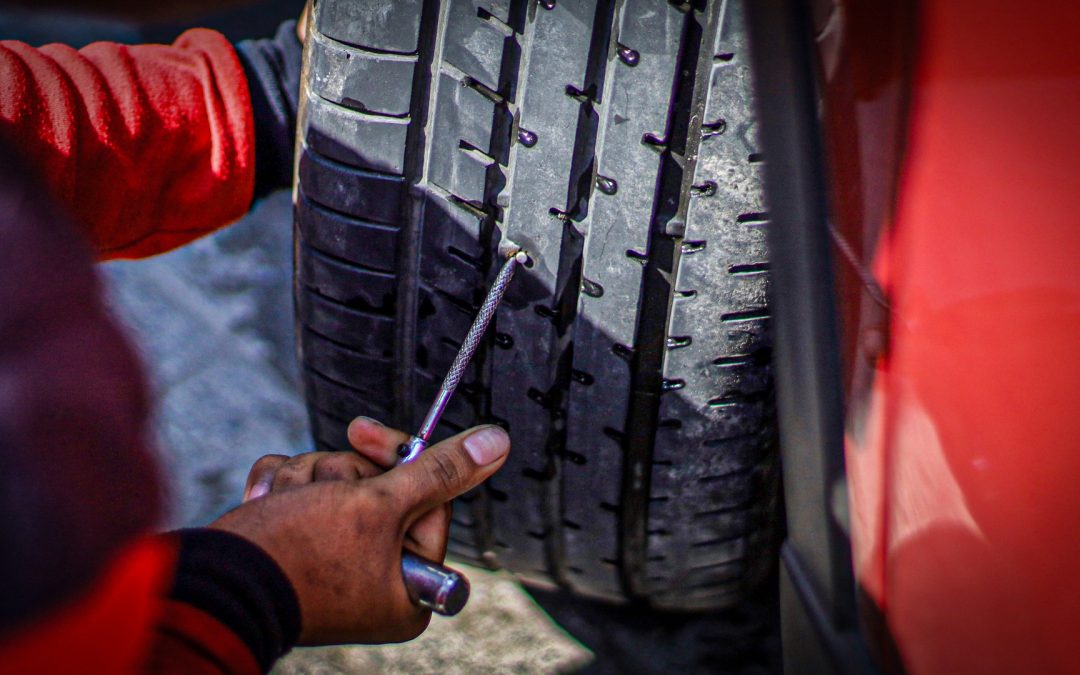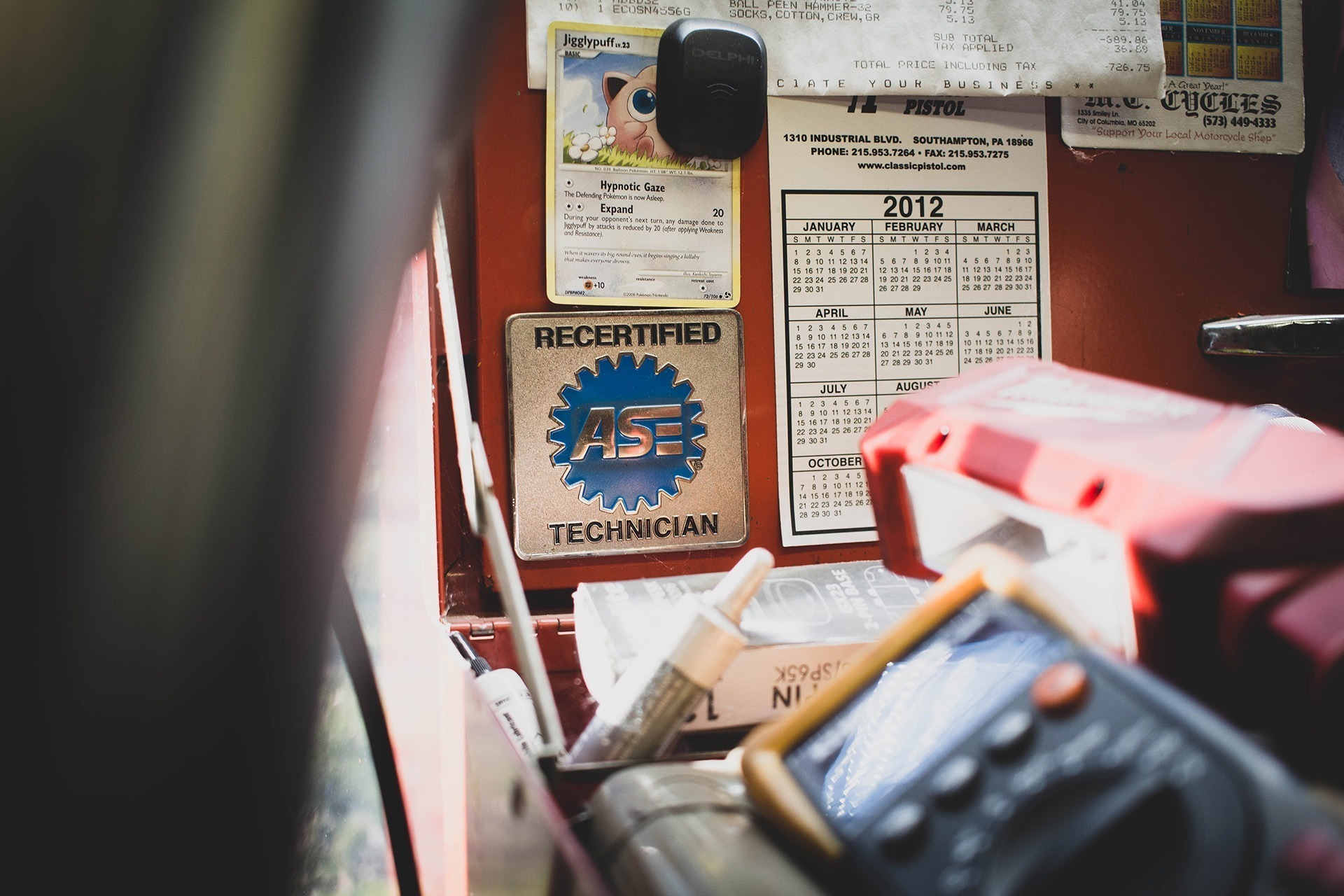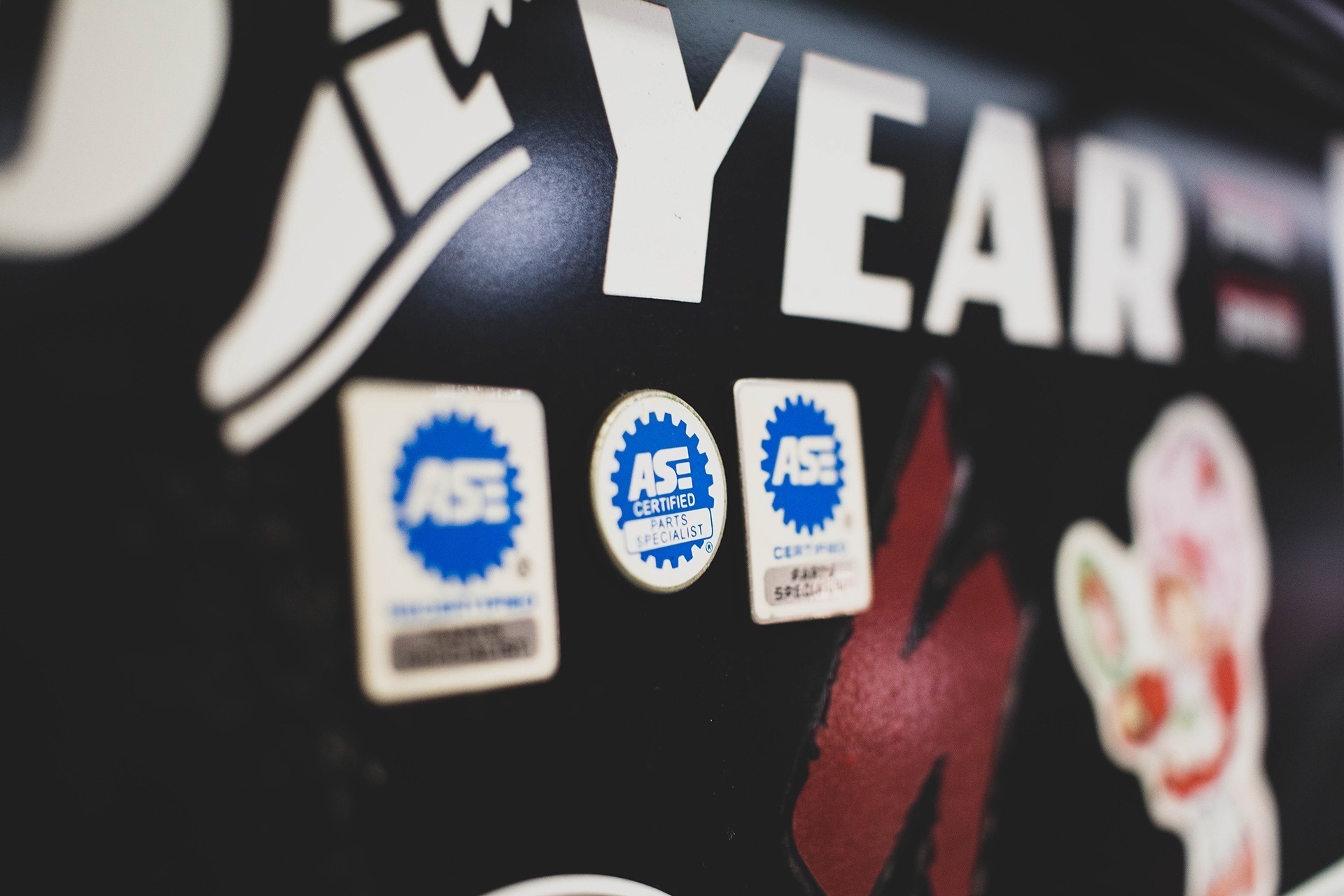Patching a punctured tire is a common job, but are you up to date on the latest guidance for safe plug locations?

If you’re reading this, you know what the ASE exams are, so I won’t bore you with a recap.
I took a few ASE exams recently. Some were recertification exams and some were fresh certifications, but boy, hasn’t this process changed? When I first started taking these nearly 20 years ago, I’d show up at a tech school and take pencil-and-paper exams with a bunch of guys also wearing blue uniforms, and we’d wait weeks for results. Nowadays, ASE farms out the test-taking to a proctoring company and tests are all electronic, but the basic premise hasn’t changed: they ask questions, and you gotta answer correctly.
I’ve got a few tips for test-takers. I read a few articles like these before my latest round of tests, but they were all just pieces espousing generic test-taking advice. I have a few thoughts that might be a little more help to someone taking these tests specifically. Trish Serratore, Senior VP of Communications at the ASE, had some choice advice as well.
Nothing here is a magic bullet; you need to know what you are doing. That said, there are a few things you can do to tip the scales in your favor on a question or two.
 Test success starts at the outset—have a plan
Test success starts at the outset—have a planRecerts usually have way fewer questions than a fresh certification—about half. This will likely affect how long you can stay sharp. Even if you know a particular area of the vehicle well, a fresh certification is literally twice as many questions and thus twice as much work. Multiply that by a few tests and you can see how it spirals out of control quickly.
I know my natural inclination is to pay as few sit fees as possible, but there’s a practical upper limit to how many tests you can take in one sitting. I’m sure there is someone reading this who sat for every A-series test and walked out a master tech (and you have my admiration), but for most folks, a few sittings will give you better results (and give you time to recertify a few tests at a time in the future, rather than having a once-every-five-years cram session).
I’d encourage you to take a few practice tests consecutively. You’ll quickly figure out exactly how many you can realistically handle in one sesh. I think for most people, a few hundred questions is probably the outer limit before your performance may begin to degrade.
A final piece of advice I’d offer you is to start by creating your ASE account and inputting your work experience first.
“Every year we have people take exams who never get certified because they never fill out their work experience,” Trish told me.
It’s free to create an ASE account if you don’t have one, so it makes sense to sign up and input your work experience so this doesn’t happen to you. Remember, too, if you went to school education can count for experience.

 Study materials can be a mixed bag
Study materials can be a mixed bagThe ASE offers study guides for your test. In my mind, these are analogous to a rubric. These are the definitive breakdown of what is on the test and what percentage of a test a given topic comprises.
So far as I am aware, the ASE does not publish actual materials for you to study, considering it a potential conflict of interest. Most techs choose one of two ways to prepare. One is not using study guides at all. That’s certainly a valid way of approaching the situation, but I personally wouldn’t do well like that. The other popular scenario is using study guides provided by third-party companies.
Books put out by independent third parties are foundational and don’t always keep pace with the test evolution. Sadly, many are not updated often enough. I’ve used test prep materials from some larger companies and come away from them realizing they’re very helpful, but not a magic bullet. I’ve seen some books where older, less relevant material isn’t pared down enough on the next edition, so you wind up unwittingly spending your time studying antique car parts. Multiple books, be they guides, OEM materials, or cast-off vo-tech stuff, are good arrows to have in your quiver but staying up-to-date is the most difficult part of study, I think.
When you feel like you’re ready to test your knowledge, the ASE is probably your best bet because they offer practice exams and presumably their questions will be a pretty good representation of material covered on the test. If you bought study materials, odds are excellent they will also have practice tests. The downside here is after you tally fees for the tests, the study materials, and the practice tests, costs start to really balloon. You’re gonna have to balance what you know against how much you can spend.
On an editorial note, I would like to mention that every employer I’ve ever asked for help with test fees and study materials has chipped in. Maybe I have great luck, but I think they were interested in helping me get certified because my certificate in the frame in the waiting room helped them, too. Remember, it’s free to ask your boss for assistance.
On the practical side of things, nothing beats shop time, but you should have that in spades already. Make use of that situation. Bring stumpers into the shop with ya to work through with fellow techs. A colleague may be able to explain confusing concepts in a way you can better understand. They can also help ferret out errors in practice material questions, which are way more common in most of the independent study guides than you might expect. Finding errors is valid study, too.
 Take a ton of practice tests, but not for the reason you think
Take a ton of practice tests, but not for the reason you thinkIs taking a ton of exams good study? Sure. You should take practice tests, see what you got wrong, and go brush up. Usually your weak areas crop up fast. But I’m recommending this because you need to get out of “repair this car” mode and into “demonstrate that you understand the material” mode.
For instance, we all know cars make weird noises and problems manifest differently all the time. But the ASE wants the theoretical book answer to verify that you know what to look for. That means, for instance, that bad ball joints always go “pop,” outer CV axle joints always go “click,” and bad wheel bearings always go “roar!”
The ASE tests your knowledge in a specific way, and practicing those tests gets you in sync with what they’re asking you to demonstrate.

 A lot of the tests are theoretical in nature, not practical
A lot of the tests are theoretical in nature, not practicalThe ASE tests are make-agnostic. For instance, the “Composite Vehicle” in the L1 is an amalgam of many different cars.
It’s important to remember these “theoretical vehicles” may contain some technology you don’t see often, if ever—in that respect, they are somewhat model-year-agnostic, as well. Drum brakes? Sure, they’re out there, but most of you are not refreshing them often. Control arm shims? You’re not gonna swap as many of those as a tech did 40 years ago, but you better understand how they affect alignment specs on a vehicle that uses ‘em.
A few questions I saw on a third-party practice exam referenced negative and positive toe and setback. I had to go look those up, simply because that’s textbook stuff, not real-life stuff. No one discusses setback relative to the opposite wheel on the axle. Similarly, toe is almost always discussed in terms of “toe-in” or “toe-out,” but knowing the theory in this case is as important as knowing the practice.
We all know shop practice doesn’t always reflect the textbook way to do things. I sure don’t set up the dial gauge to measure tie rod play. You probably don’t have a brake lathe in your shop, so all bad rotors are replaced with no option for machining. There’s nothing wrong with those things. But none of us can rely on practices like those to get through an exam.
Old cars and stuff out of a vo-tech textbook may not make up the bulk of a workday in a modern automotive shop, but those theoretical scenarios are exactly the type of stuff you’re going to bump into on your exams. Don’t be caught off-guard.
 Consider starting with the G1 (or the P1 or C1)
Consider starting with the G1 (or the P1 or C1)Some of you will take these exams because your boss informed ya that you needed to acquire certification. Others will get a pay bump for certification status. Still others are looking for a job in a shop but are having trouble finding one because of a lack of experience, which is ironic since one needs experience for ASE certification. (Anyone can sit for ASE exams, but no certification can be obtained without the needed industry experience.)
I certainly understand a shop’s need for techs who can hit the ground running, but entry-level jobs that require several years of experience are a bit of a headscratcher, aren’t they?
During my last round of tests, I sat for the G1 exam—Maintenance and Light Repair—to see what it was like, since this was not available when I started out turning wrenches. In my research, I have realized many techs are bearish on the exam, feeling it cheapens their own hard-won certifications.
Personally, I don’t feel my success is stifled by the accomplishments of others. I think this test is a wonderful idea. It’s a great stepping stone to the A-series for an aspiring tech, and it allows one to get the hang of the exams a year before eligibility for the A-series. I also think it’s perfectly acceptable for a maintenance tech at a quick lube or tire facility. C-level techs don’t need A-level training. Most importantly, any ASE certification demonstrates an interest in advancing one’s skillset.
If you’re thinking about a career turnin’ wrenches, the G1 is a great way to jump into the world of proving what you know. And for those of you holding down a counter, the P1 or C1 also are nice, portable ways to show your customers and your employer you know (and care).

 Study your electrical
Study your electricalYou gotta know the electrical stuff. It affects every portion of a vehicle at this point in time. Being able to read a wiring diagram is table stakes. At bare minimum, you’ll need to know the symbols for grounds, switches, resistors, diodes, and fuses. If you can’t identify those at a glance, it’s gonna get rough.
Another strategy that helps here is to remember that electricity always follows some basic rules. You can be looking at a complex diagram, but if the test question is asking about an accessory that won’t turn off, “short to ground” or “open” are probably not the right answers unless it’s switched on the negative side, which is not the norm. Context clues are king on exams like this, as you might remember from your SAT days in high school.
“Don’t read into the question or use prior experience to answer,” Serratore counseled. “Just pick the right one from the choices offered.”
Sage advice if you can make good on it.
 Technician A and Technician B questions are a pair of true-false questions
Technician A and Technician B questions are a pair of true-false questionsWe all hate these questions, and there’s good reason: you have to effectively get two true-false questions correct to obtain the credit for just one question.
Guessing is never a great strategy on any test, but if you can ID even one of the two techs as correct or wrong, you can scratch two candidates off your “possible answers” list. I’d recommend setting it aside and making sure you get every other question in a section some attention. However, if you come back to it and have to take a stab at an answer, 1 outta 2 odds ain’t bad. In my estimation, if you have to throw darts on a question, these are the best ones to save for guessing given how good the odds are.
Nothing in here is a life-changing solution, but if you save one failed test for having been forewarned, it was probably worth the time to skim this piece. Of course, if you have any other specific questions I didn’t cover, let me know below and I’ll respond as best I can, though I am certainly not an expert. Good luck on your tests, and good for you for investing in yourself!
The articles and other content contained on this site may contain links to third party websites. By clicking them, you consent to Dorman’s Website Use Agreement.
Participation in this forum is subject to Dorman’s Website Terms & Conditions. Please read our Comment Policy before commenting.